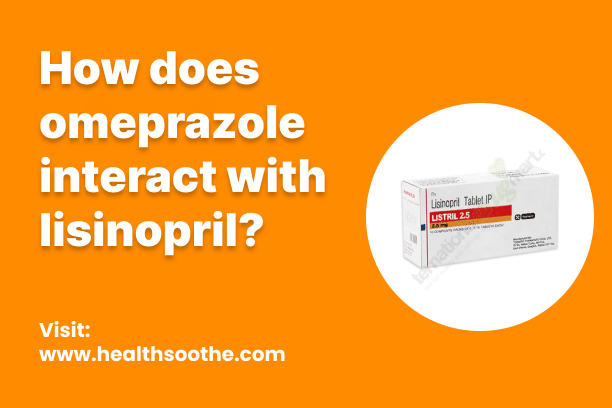Omeprazole is prescribed for specific gastrointestinal issues such as acid reflux and ulcers. Its mechanism of action involves reducing the production of stomach acid, thereby alleviating symptoms like heartburn, swallowing difficulties, and coughing. This medication aids in the healing process of acid-related damage in the stomach and esophagus, helps prevent ulcer formation, and may even reduce the risk of esophageal cancer. Omeprazole falls under the category of drugs called proton pump inhibitors (PPIs).
If you’re using over-the-counter omeprazole for self-treatment, it’s typically intended for managing frequent heartburn (occurring 2 or more days per week). Keep in mind that it may take between 1 to 4 days to achieve its full therapeutic effect, so these products do not provide immediate relief from heartburn.
When using over-the-counter omeprazole, it’s crucial to carefully read the instructions on the packaging to ensure that the product is suitable for your needs. Verify the ingredients listed on the label, even if you’ve used the product previously, as the manufacturer might have made changes. Additionally, products with similar brand names might contain different ingredients designed for various purposes. Taking the incorrect product could have adverse effects on your health.
Discover how omeprazole interacts with lisinopril, including potential effects on potassium levels, kidney function, and blood pressure. Learn what to watch for and how to stay safe.
Lisinopril
Lisinopril is prescribed for managing elevated blood pressure, aiming to reduce the risk of strokes, heart attacks, and kidney issues. Additionally, it is utilized for addressing heart failure and enhancing survival rates post-heart attack. Lisinopril falls into the category of medications called ACE inhibitors, functioning by dilating blood vessels to facilitate smoother blood flow.
How to use lisinopril
Take this medicine orally, either with or without food, following your doctor’s instructions, typically once a day.
If you’re using the liquid form of this medication, shake the bottle well before each dose. Measure the dose precisely using a specialized measuring device/spoon. Avoid using a regular household spoon as it may not give the accurate dose.
ribed dosage depends on your medical condition and how you respond to the treatment.
The prescFor children, the dosage is also determined by their weight.
To minimize the risk of side effects, your doctor might advise starting with a low dose and gradually increasing it. Adhere closely to your doctor’s guidelines.
Consistently use this medication to gain the most benefits. To help remember, take it at the same time each day. Keep taking it even if you feel fine, as most individuals with high blood pressure don’t experience symptoms.
It may take 2 to 4 weeks to experience the full effects of this medication for high blood pressure and weeks to months for heart failure treatment. Inform your doctor if your condition doesn’t improve or worsens (for instance, if your blood pressure remains elevated or rises).
Read Also: The Process of Obtaining a Medical Marijuana Prescription Explained
Side Effects
Some common side effects you may experience as your body adjusts to the medication include dizziness, lightheadedness, fatigue, or headaches. You may also develop a dry cough. If any of these effects persist or worsen, notify your doctor or pharmacist promptly.
To minimize the risk of dizziness and lightheadedness, rise slowly from a seated or lying position.
Keep in mind that this medication is prescribed because your doctor believes that the benefits outweigh the potential side effects. Many people using this medication do not experience serious side effects.
Inform your doctor immediately if you experience any serious side effects, such as fainting or symptoms of high potassium levels in the blood (like muscle weakness or irregular heartbeat).
While lisinopril is used to prevent or treat kidney problems, it can occasionally cause or exacerbate serious kidney issues. Your doctor will monitor your kidney function during treatment. Contact your doctor right away if you notice any signs of kidney problems, such as changes in urine output.
Rarely, this medication can lead to severe liver problems. Seek medical attention if you have symptoms of liver damage, such as persistent nausea or vomiting, loss of appetite, abdominal pain, yellowing of the eyes or skin, or dark urine.
A severe allergic reaction to this medication is uncommon but possible. Seek immediate medical help if you observe signs of a severe allergic reaction, such as rash, swelling (especially of the face/tongue/throat), severe dizziness, or difficulty breathing.
Pros and Cons of omeprazole and lisinopril
Omeprazole:
Pros:
- Effective in treating acid-related disorders
- Relief of symptoms
- Well-tolerated
Cons:
- Potential for side effects
- Long-term use concerns
- Interactions with other medications
Lisinopril:
Pros:
- Effective in treating hypertension
- Kidney protection
- Cardiovascular benefits
Cons:
- Side effects
- Pregnancy concerns
- Interactions
Differences Between omeprazole and lisinopril
Omeprazole:
It is used to treat acid-related disorders such as GERD, ulcers (both gastric and duodenal), erosive esophagitis, and Zollinger-Ellison syndrome.
Lisinopril:
It is primarily indicated for the treatment of hypertension (high blood pressure) and heart failure. It may also be prescribed after a heart attack to improve survival rates.
Alternative to omeprazole and lisinopril
Alternative to Omeprazole (for acid-related disorders):
Antacids:
Over-the-counter antacids like Tums, Maalox, and Mylanta can provide temporary relief from heartburn and indigestion by neutralizing stomach acid. They are not as potent or long-lasting as prescription medications like omeprazole but can be used as adjuncts or for mild symptoms.
Alternative to Lisinopril (for hypertension and heart-related conditions):
Angiotensin II receptor blockers (ARBs):
Drugs such as losartan, valsartan, and irbesartan are ARBs that work similarly to ACE inhibitors but by a different mechanism. They are often used as alternatives for patients who cannot tolerate ACE inhibitors due to side effects like cough.
Interactions between your drugs
Lisinopril
There are 396 drugs known to interact with lisinopril.
Lisinopril belongs to the drug class Angiotensin Converting Enzyme Inhibitors.
It is used to treat the following conditions:
- Alport Syndrome (off-label)
- Coronary Artery Disease (off-label)
- Diabetic Kidney Disease (off-label)
- Heart Attack
- Heart Failure
- High Blood Pressure
- Migraine Prevention (off-label)
- Nephropathy (off-label)
- Polycystic Kidney Disease (off-label)
Prilosec (omeprazole)
There are 222 drugs known to interact with Prilosec.
Prilosec belongs to the drug class proton pump inhibitors.
It is used to treat the following conditions:
- Barrett’s Esophagus
- Duodenal Ulcer
- Erosive Esophagitis
- GERD (Gastroesophageal Reflux Disease)
- Helicobacter Pylori Infection
- Indigestion
- Multiple Endocrine Adenomas
- Stomach Ulcer
- Systemic Mastocytosis
- Zollinger-Ellison Syndrome
Drug and food interactions
lisinopril food
AVOIDANCE SUGGESTION: Patients using angiotensin-converting enzyme (ACE) inhibitors should generally avoid a diet with a moderate to high intake of potassium due to the potential for hyperkalemia. Some instances of hyperkalemia in affected patients were associated with the use of potassium-rich salt substitutes. ACE inhibitors can contribute to hyperkalemia by inhibiting the renin-aldosterone-angiotensin (RAA) system.
MANAGEMENT RECOMMENDATION: Patients taking ACE inhibitors should be advised to steer clear of diets high in potassium content, particularly paying attention to the potassium levels in salt substitutes.
lisinopril food
MONITORING NOTE: Numerous psychotherapeutic and CNS-active medications (such as anxiolytics, sedatives, hypnotics, antidepressants, antipsychotics, opioids, alcohol, and muscle relaxants) can lead to hypotensive effects, particularly during treatment initiation and dose adjustment. Combining these drugs with antihypertensive medications and other agents that lower blood pressure, especially vasodilators and alpha-blockers, may result in additional effects on blood pressure and orthostasis.
MANAGEMENT GUIDANCE: Exercise caution and closely monitor for signs of hypotension when these medications are used together. Some experts advise against alcohol consumption in patients taking vasodilating antihypertensive medications. Patients should be instructed to avoid sudden changes in posture (like getting up quickly from sitting or lying down) and to inform their doctor if they experience symptoms such as dizziness, light-headedness, fainting, orthostatic hypotension, or rapid heart rate.
Conclusion
The interaction between omeprazole and lisinopril primarily involves the potential for increased levels of potassium in the blood (hyperkalemia) when these medications are used together. Omeprazole may enhance the effects of lisinopril in raising potassium levels, which can lead to serious health complications such as irregular heart rhythms and muscle weakness.
To mitigate this interaction, healthcare providers may recommend monitoring potassium levels regularly, especially when starting or adjusting the dose of either medication. Patients should also be educated about the signs and symptoms of hyperkalemia, such as weakness, fatigue, and abnormal heartbeats, and advised to seek medical attention if they experience any concerning symptoms.
In conclusion, understanding and managing the interaction between omeprazole and lisinopril is crucial for ensuring the safe and effective treatment of patients with conditions requiring both medications. Healthcare providers should assess the potential risks and benefits of coadministering these drugs and take appropriate measures to prevent adverse outcomes.



